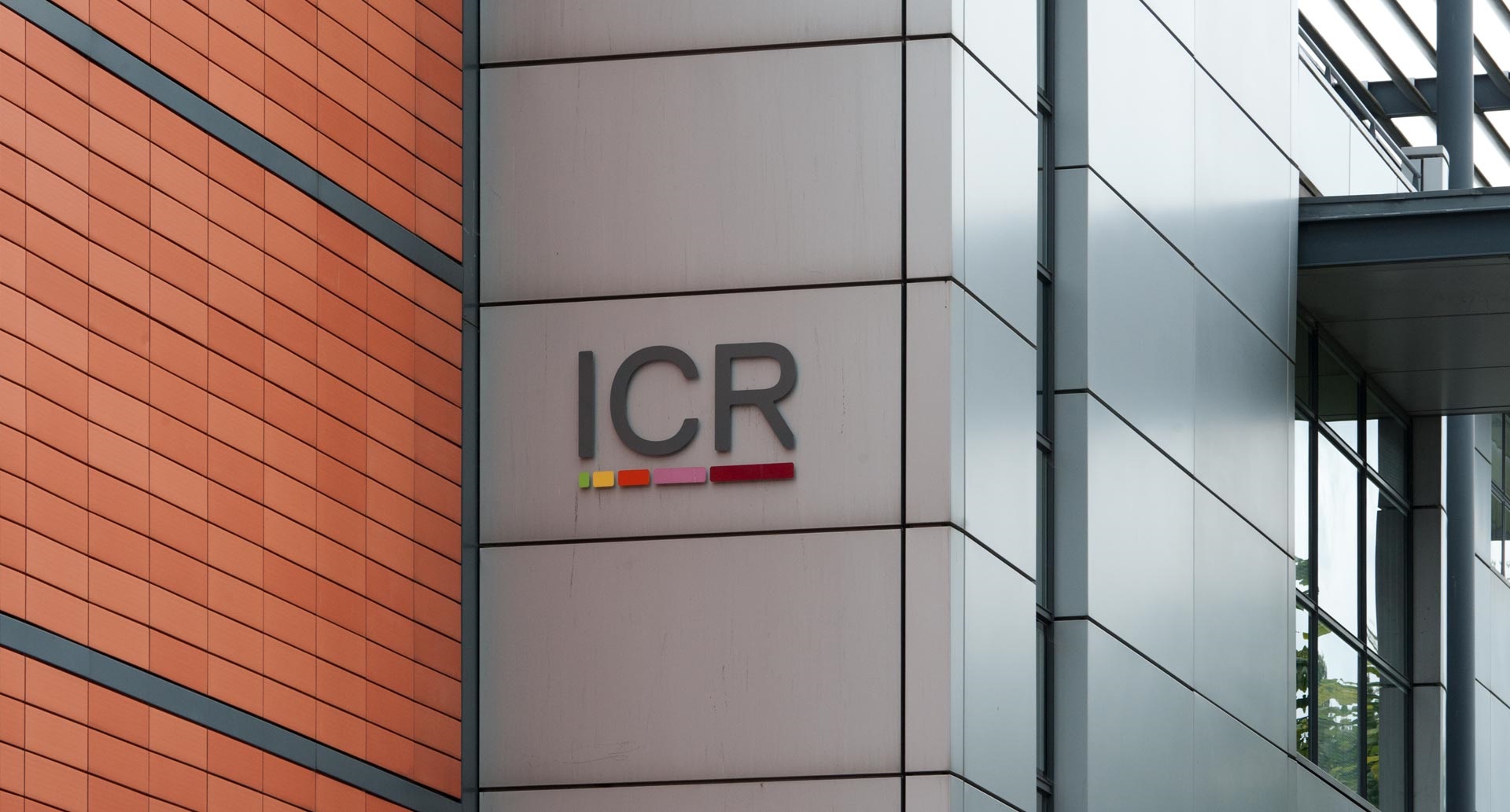Welfare
The ICR believes in having a culture that values everyone, where everyone is treated with dignity and respect. We do not tolerate bullying, harassment and/or victimisation and we expect everyone working or studying at the ICR, as well as ICR visitors and guests, to behave respectfully towards others and never act in a way that could be regarded as bullying, harassment or victimisation.
On this page you can find information about the policies and procedures the ICR has in place regarding harassment and sexual misconduct, as well as information on supports available to you.
Harassment and Sexual Misconduct
The Dignity at The ICR Policy covers students as well as staff, and includes the following:
- Definitions of harassment, sexual harassment, sexual misconduct and assault, bullying, microaggressions, and other types of harassment
- Supports available for those affected or involved
- Consequences of breaching the policy
- How claims will be investigated and dealt with fairly
- How information received or obtained through investigation of a claim under this policy will be handled sensitively and used fairly, in compliance with data protection legislation
- Processes for investigation and appeals
- How and when individuals involved will be informed of any decisions reached
Staff in breach of this policy may be dealt with under the disciplinary policy, and students may be dealt with under the student disciplinary policy.
Staff and students can report any incidents or complaints of harassment or sexual misconduct through the procedure outlined in the Dignity at the ICR policy.
Alternatively, disclosures can be made through the Report and Support platform. Report and Support is monitored by the ICR’s wellbeing team and it provides the option to make anonymous reports, or to make a report with contact details provided in order to facilitate further follow up. It can be accessed through Report + Support.
The ICR conducts quarterly reviews on the number of reports of bullying, harassment and other inappropriate behaviour, including the type of behaviour, how it was reported and what actions have been taken to address the concerns. You can view these reports on Nexus.
MSc students can contact Registry to access these reports.
Those who are affected by, or involved with, a complaint of bullying or harassment can access a range of supports from the ICR. These include:
- A network of Wellbeing Champions – members of staff and students who have are available to listen and signpost to support;
- The recognised Trade Union, which has accredited representatives able to support their members;
- Human Resources (if an employee) or Registry (if a student);
- Line managers or supervisors. Where this is inappropriate (i.e. because the line manager is involved), advice may be sought from another manager;
- A free, independent and completely confidential Employee and Student Assistance Programme, providing information, advice and support to staff and students;
- Report + Support provides an alternative, safe and secure way for staff, students and visitors to report any concerns about unacceptable or inappropriate behaviour in confidence. This can be done anonymously, or name and contact details can be provided so that a member of Human Resources or Registry can follow up directly on the concerns raised.
Taught course students can access information in their student handbook and by contacting the Clinical Taught Courses administration team in Registry.
Details of further ICR support and external agencies also providing support are available from the HR and Registry teams.
All new employees and research students undertake the ICR’s Supportive Workplace and Active Bystander training. This interactive and engaging session is designed to introduce attendees to our vibrant working and research culture, providing guidance on how to cultivate positive behaviours that contribute to our collective success. It will also enable attendees to identify problematic behaviours and take effective action.
Taught course students will be able to access training material on the ICR’s online learning platform Canvas.
All ICR staff will also undergo refresher training every two years, which will cover what harassment and sexual misconduct can look like, how to be an active bystander, and where to go to seek support.
Support while studying at the ICR
Your welfare is important to us. That's why we offer a range of support services to help you during difficult times. The Academic Dean's team has an open door policy where students can discuss issues of concern. The ICR also provides access to the Employee Assistance Programme - a free 24-hour counselling service for all staff and students.
Conditions may include sensory impairment (visual/hearing), mobility or dexterity impairment, chronic medical conditions (e.g. diabetes, HIV, epilepsy, asthma) or chronic pain/fatigue, mental health difficulties, specific learning difficulties (e.g. dyslexia or dyspraxia), Asperger's Syndrome and other autism spectrum disorders.
The ICR aims to offer as much appropriate assistance as possible to accommodate individual needs, and will take all reasonable steps to ensure that both the application procedure and the programme itself are organised and delivered to offer all students the opportunity to participate fully.
Applicants are encouraged to let Admissions know if anything further can be done to make the application and selection process as accessible as possible. This helps the ICR to ensure that applicants’ specialist needs can be understood, and any obstacles minimised, throughout the application and admission process.
Once registered, the ICR can provide specific support to students with disabilities throughout their studies. Students are encouraged to disclose any disability from as early as possible, via the Registry. This will allow any special arrangements, for example regarding examinations, to be made.
Our students are normally fully-funded from a range of sources with many from overseas. Disabled students who are self-funded and from the UK, may be able to benefit from the Disabled Student Allowance.
If you would like further information about how we help students with disabilities at the ICR please contact the Registry.
Confidentiality
Information disclosed regarding your disability and/or additional needs will be dealt with in a confidential manner; this is in accordance with the General Data Protection Regulation.
Without knowledge of your disability, it may be difficult to fully support your needs and make the necessary adjustments.
The Institute of Cancer Research promotes equality of opportunity and does not tolerate discrimination, harassment, victimisation on the grounds of gender, race, age, disability, sexual orientation, religion or belief.
As a student, your supervisory team will have responsibility for your day-to-day welfare, both academic and personal. We recognise however, that individual students may be reluctant to share personal difficulties with their supervisor if they feel it may conflict with academic progress.
Nominated members of the Academic Dean’s team have responsibility for the general welfare of students and each student is assigned a member of the Dean's team as a source of support for the duration of their studies and who will check on students' welfare and academic progress at regular intervals.
In addition, students are welcome to discuss any issues with a member of the Registry team at any time.
The ICR provides counselling services through its employee support programme which is also open to students but we have also developed a network of Student Wellbeing Advisers.
These are current students who have volunteered to give their time to help others who would prefer to talk on a confidential basis about issues which affect them. The Student Wellbeing Advisers are trained in communication skills and knowledge of other help networks for students.
If you are concerned about issues related to your project we advise you to discuss these if at all possible with your supervisor in the first instance.
Read our Student Support Quick Reference Guide to see the support that is available for our students.
London Nightline
Nightline is open throughout the night to provide information and support for students in London. The lines are run by student volunteers who have undergone extensive training and understand that university life in London isn't always plain sailing.
The service is strictly confidential and will cost the same as calling any London landline. Please see the London Nightline website for further information.
Free careers advice, guidance and information is offered to all current ICR students by The Careers Group, which is the University of London’s higher education careers service. ICR students are also permitted to continue to receive advice for up to one year after they finish their studies.
To find out more about our careers’ sessions and events, see our career support webpage.
The ICR provides a free 24 hour counselling service for all staff and students and family members of their household. The service also includes a consumer and legal helpline.
The ICR is committed to create a suicide-safer community. Every suicide is a tragedy with devastating effects on family and friends. Yet suicide is in many cases preventable and the ICR aims to ensure that students and staff who are contemplating suicide (or having suicidal thoughts or feelings) or are affected by a suicide or attempted suicide have access to appropriate support.
You can view the ICR's Suicide Safer Strategy here: ICR Suicide Safer Strategy
Historical policies
Challenging Bullying and Harassment Policy 2024
Challenging Bullying and Harassment Policy 2022
Challenging Bullying and Harassment Policy 2019
N.B. This policy is now called the Dignity at The ICR Policy

-1.jpg?sfvrsn=3efe4a5_2)
